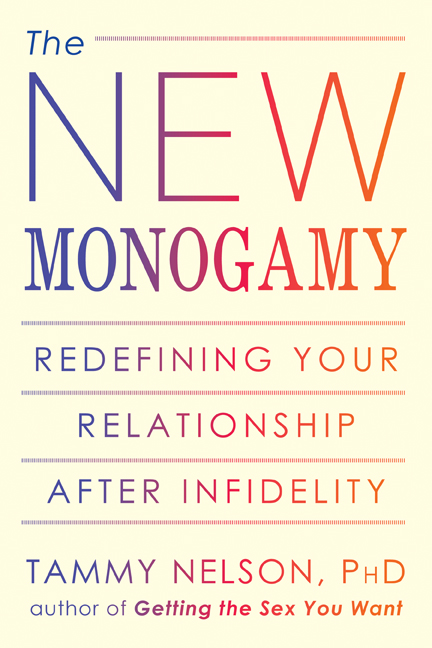By Tammy Nelson, PhD
What does it mean to work with couples in open marriages? Not all therapists personally agree with the concept of open marriage. However, you don’t have to change your values to treat couples who have chosen a lifestyle that doesn’t align with your own. It’s important to be aware of the myriad of possible non-traditional relationships you might encounter in your practice. Here are some examples:
Closed Marriage. This is what most of us think of when we picture "monogamy." A closed marriage is one in which both partners agree to sexual and emotional fidelity.
Open Marriage. "Open" is a general term that covers many different types of marriage agreements, but usually is defined as leaving room for outside sexual partners. In open marriages, sexual encounters with people other than the spouse are accepted as part of the relationship agreement.
Polyamory. Poly comes from the Greek, meaning "many," and the Latin amour, meaning "love," so Polyamory defined means "many loves." It is different from open marriage in that it’s not just 'sex for fun' with outside partners, but loving, romantic, and emotional connections with others outside of the marriage. Poly couples believe they can love more than one person at a time, and maintain a primary partner at the same time.
Swinging. Traditionally, swinging couples swapped partners for a fun sexual experience, purely for the eroticism. The North American Swing Club Association (NACSA) describes swinging as "the recreation" for couples whether they are married, committed (having an ongoing emotional relationship), living together (co-habitating, with or without an ongoing intimate relationship), or single couples who date. To learn more, visit: http://www.nasca.com/faq.html
In working with couples, one of the biggest challenges arises when one partner wants to open the marriage, while the other one does not. One exercise therapists can use in a couples session is to have each partner write down their fears, fantasies, and desires with respect to the possibility of changing their monogamy agreements. Then have them share with one another, and discuss the power and potential of the answers. This exercise allows each partner to be heard, and when each experiences validation, they can usually come to agreements on what type of relationship they want going forward.
It’s advisable that partners examine every aspect of their monogamy continuum from fantasy to polyamory, to decide if they should—or if they want to—make changes to their marriage or relationship. It’s also important that the couple talk before, during, and after if they want to make any changes to their monogamy agreements—explicit or implicit—or after they’ve been hurt if one of them strays.
Can couples cheat in open marriages? Any time a partner goes outside of the agreement, they have violated their relationship, whether open or closed, fluid or flexible, and the root of the problem is usually dishonesty. The lies each partner tells usually begin long before the betrayal becomes concrete. Having an open discussion about how the dishonesty began is the first step toward healing the relationship.
Therapy should be a safe place with concrete therapeutic interventions to help anyone working on their relationship, regardless of its openness, its dimension, its phases of monogamy, or its form.
 Tammy Nelson, PhD, is a world-renowned expert in relationships, a psychotherapist in private practice, and the author of The New Monogamy. In addition, Nelson is a popular lecturer around the world on sexuality and human relationships and global relational change. She is a board-certified sexologist, an AASECT-certified sex therapist, a licensed professional counselor, and a certified Imago relationship therapist. She resides in the New York City area, where she works in her private practice treating couples who are looking to restore passion to their relationships, recover from infidelity, and create their new monogamy, one agreement at a time.
Tammy Nelson, PhD, is a world-renowned expert in relationships, a psychotherapist in private practice, and the author of The New Monogamy. In addition, Nelson is a popular lecturer around the world on sexuality and human relationships and global relational change. She is a board-certified sexologist, an AASECT-certified sex therapist, a licensed professional counselor, and a certified Imago relationship therapist. She resides in the New York City area, where she works in her private practice treating couples who are looking to restore passion to their relationships, recover from infidelity, and create their new monogamy, one agreement at a time.

 2024 Peace Playbook: 3 Tactics to Avoid Clashes with Your Partner
2024 Peace Playbook: 3 Tactics to Avoid Clashes with Your Partner